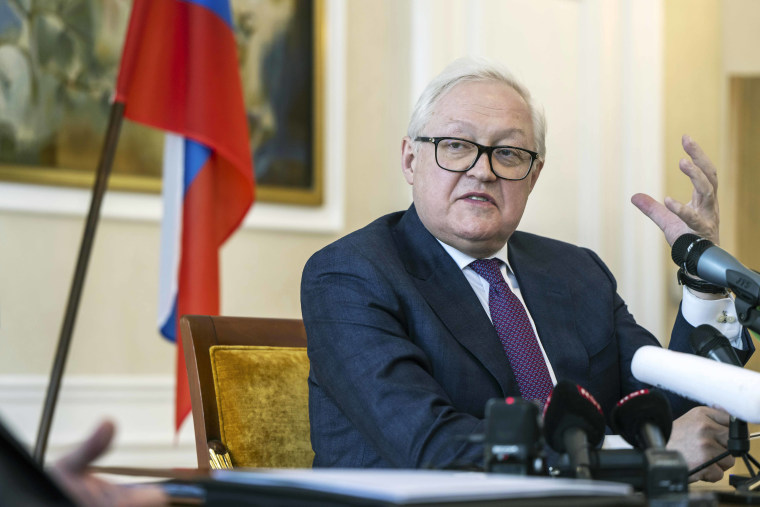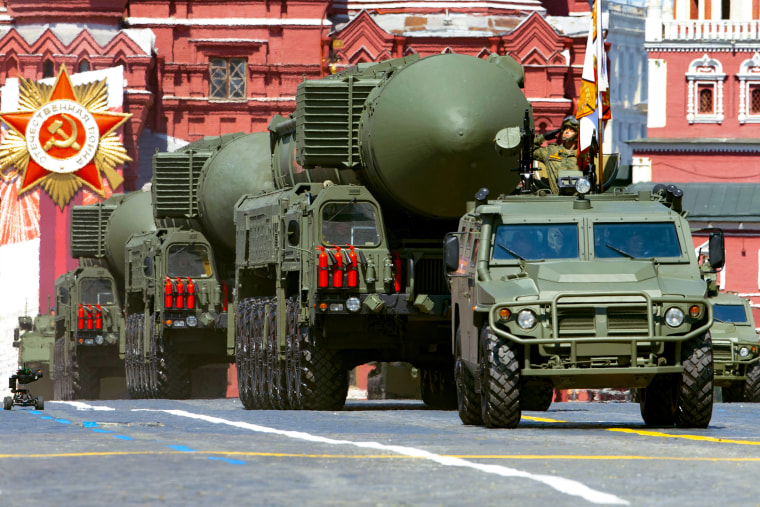A senior Russian diplomat said Moscow had suspended sharing information about its nuclear forces with the United States, including notices about missile tests.
Sergei Ryabkov, Russia's deputy foreign minister, said in remarks carried by news agencies that Moscow had halted all information exchanges with Washington after previously suspending its participation in the last remaining nuclear arms pact with the U.S.
Last month, Russian president Vladimir Putin suspended the New START treaty, saying Russia could not accept U.S. inspections of its nuclear sites under the agreement at a time when Washington and its Nato allies had openly declared Russia’s defeat in Ukraine as their goal.
Moscow emphasized that it was not withdrawing from the pact altogether and would continue to respect the caps on nuclear weapons.
The Russian foreign ministry initially said Moscow would keep notifying the U.S. about planned test launches of its ballistic missiles, but Ryabkov’s statement reflected a change of course.
“There will be no notifications at all,” Ryabkov said when asked if Moscow would also stop issuing notices about planned missile tests.
“All notifications, all kinds of notifications, all activities under the treaty will be suspended and will not be conducted regardless of what position the U.S. may take.”
As part of Russian drills that began on Wednesday, Yars mobile missile launchers would maneuver across three regions of Siberia, Russia’s defense ministry said.

The movements would involve measures to conceal the deployment from foreign intelligence assets, the ministry added.
The defense ministry did not mention plans for any practice launches.
The Yars is a nuclear-tipped intercontinental ballistic missile with a range of over 6,800 miles. It forms the backbone of Russia’s strategic missile forces.
The defense ministry released a video showing trucks carrying the missiles driving out from a base to go on patrol. The maneuvers involve about 300 vehicles and 3,000 troops in eastern Siberia, according to the ministry.
The exercise was taking place days after Putin announced a plan to deploy tactical nuclear weapons to Belarus, Russia’s neighbor and ally.
Tactical nuclear weapons are intended for use on the battlefield and have a relatively short range and a much lower yield compared to the long-range strategic missiles fitted with nuclear warheads that are capable of obliterating whole cities.
Putin’s decision to put the tactical weapons in Belarus followed his repeated warnings that Moscow was ready to use “all available means” — a reference to its nuclear arsenal — to fend off attacks on Russian territory.
Russian officials have issued a barrage of hawkish statements since their troops entered Ukraine, warning that the continuing western support for Ukraine raised the threat of a nuclear conflict.
In remarks published on Tuesday, Nikolai Patrushev, the secretary of Russia’s security council, which Putin chairs, warned the United States and its allies against harboring hopes for Russia’s defeat in Ukraine.
Patrushev alleged that some American politicians believed the U.S. could launch a preventative missile strike on Russia to which Moscow would be unable to respond, a purported belief that he described as “short-sighted stupidity, which is very dangerous.”
“Russia is patient and isn’t trying to scare anyone with its military superiority, but it has unique modern weapons capable of destroying any adversary, including the United States, in case of a threat to its existence,” Patrushev said.
